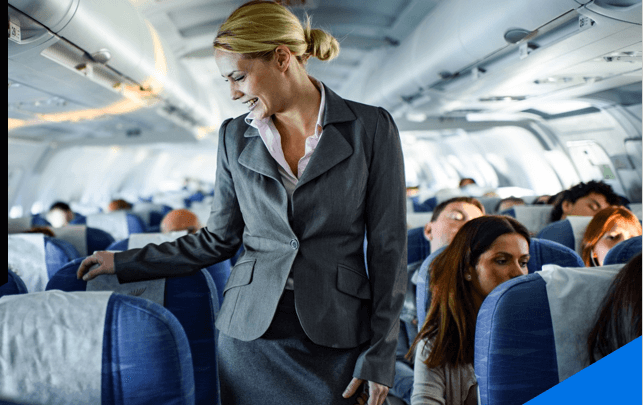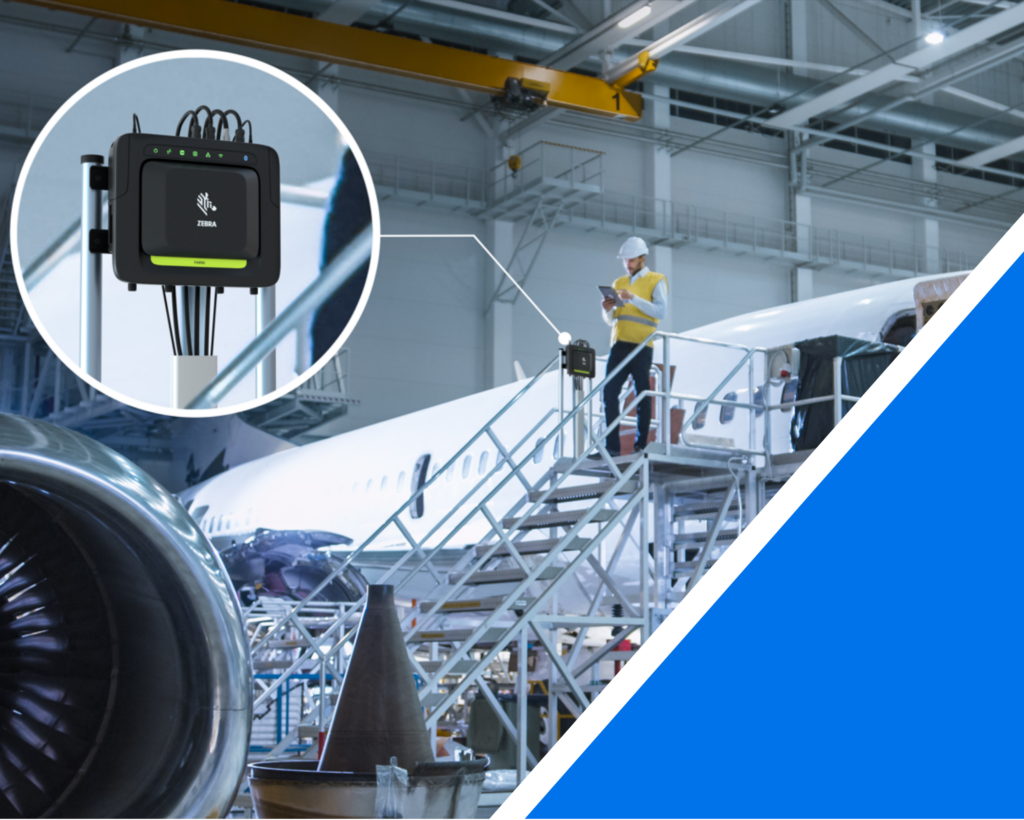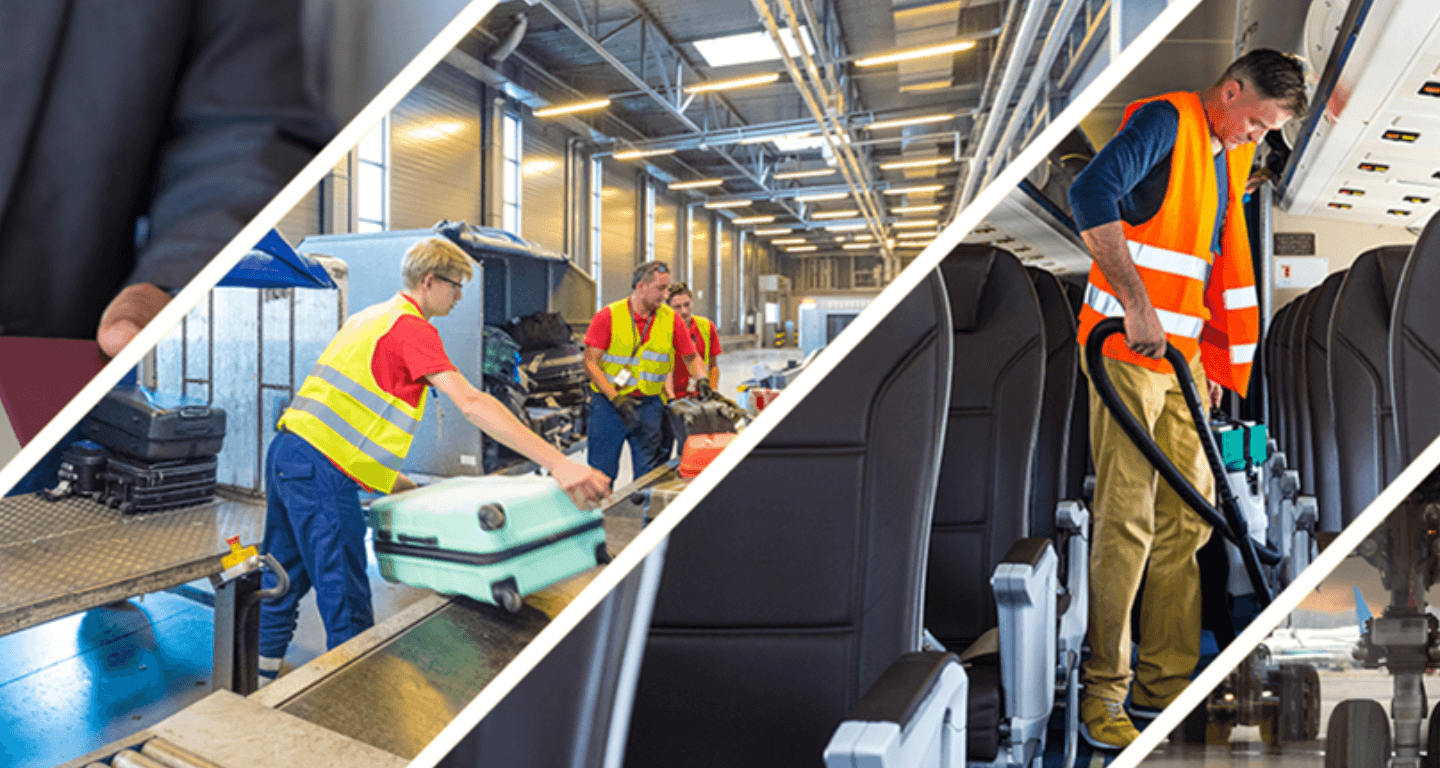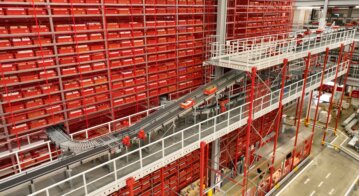With the airline industry embracing change and new technologies like alternative fuels and autonomous flight, it’s easy to forget that, in many cases, it’s the smaller, less headline-grabbing innovations that can make the most impact on the day-to-day operations of companies in the aviation sector. Efficiency improvements both above and below the wing have positive effects and, taken in total, significantly lower costs, improve passenger experience, make operations safer, and ensure compliance.
Often, however, it’s how these seemingly simple technologies are deployed and managed that is the decisive factor in enabling their benefits. A simple example is the use of mobile hardware by crew both on the ground and in the air. In isolation, handhelds have the advantage of moving away from paper-based workflows, but unless data is integrated with that from other workflows, there’s little to be gained.
When multiple discrete instances of technology like RFID and handhelds act together within a framework of software that’s designed to facilitate data exchange and analysis, airlines and airports can make savings and improvements quickly, achieving rapid returns on what can be relatively modest investments.
Specialization Requirements
Regardless of sector, most software and technology represent an investment designed to achieve goals specific to the industry. Airlines and airports looking to invest, therefore, benefit from advice, procurement, installation, and maintenance of their chosen solutions by expert partners. In highly regulated and safety-conscious industries like aviation, consultation and partnership with an aviation sector specialist are particularly important. This is true regardless of the size and scope of any digitization project.
Technologies like barcode scanning, mobile handsets and RFID are mature, and their daily, practical use has been much advanced by Zebra Technologies, a company whose products and expertise are relied on by many thousands of enterprises and aviation companies worldwide. Its technology and device management software allow personnel to interact with and process real-time data using a range of bespoke or off-the-shelf solutions in multiple areas of operations above and below the wing. You’ll find Zebra Technologies’ solutions deployed globally in airports and by airlines that rely on it for accuracy, reliability, and security.
This article will touch on some of the industry’s operational areas and suggest ways that processes can be improved to ensure safety, improve passenger satisfaction, and create more efficient processes that benefit aviation and aviation-adjacent businesses.
Retail Operations
From the manufacturer via distribution networks to the point of sale, ground-side and duty-free retailers can use solutions that link a single mobile point-of-sale terminal back to individual SKUs, ensuring accurate stocking and pricing in multiple outlets. Edge-based computing, in combination with handheld devices and fixed POS, means that operations are digital end-to-end, and stores can offer fast and convenient options to passengers in a hurry or with time to kill.

Source: Zebra Technologies
Cargo Operations
In the modern airport, palletized goods need to be loaded and unloaded quickly and accurately, with a minimum delay to processing and maximum use of available space. Here, Zebra Technologies provides barcode solutions and RFID identification and tracking, handling complex issues like supply chain validation, flight-to-flight transfers, and import/export legalities. Thanks to real-time processes, stakeholders anywhere in the supply chain can get status updates on the progress of all consignments, and cargo operators can identify bottlenecks and potential efficiency improvements using accurate data.
Luggage Management
Lost luggage costs the industry billions every year, and although the number of misplaced or misrouted items has fallen significantly in the last decade, it’s still a problem for many carriers, especially in less popular destinations where tight margins mean every outlay on infrastructure is tightly controlled.
Automated systems in static installations behind the scenes at airports are capable of scanning and identifying thousands of baggage items an hour, reducing ground staff costs and ensuring smoother operations, securely and safely. To comply with IATA Resolution 753 on baggage inventory practice, many operators now digitally track baggage IDs with technology solutions from Zebra Technologies. When luggage does go missing, passengers can be contacted via their personal details, lowering the number of incoming inquiries to support personnel.
Technical Operations and Flight Crews
Technical operations crews also use Zebra Technologies products to enhance efficiency, passenger comfort and safety. Cabin inspections of mandatory safety equipment such as resuscitators and life jackets have to be undertaken regularly, and when done manually, this can take up to an hour between every flight for an Airbus A320, for example. This blog post describes how AirAsia changed the way it undertook mandatory equipment inspections as air traffic increased after the global pandemic. By using handheld RFID scanners, crew ensured the presence of all necessary items, plus how digital information pulled from RFID tags by handsets provides information for automated compliance auditing.
Aircraft components and parts, along with digital logs of work undertaken, resulting in a reduction in misplaced or lost items in engineering facilities and more accurate maintenance and repair records. Digital audit trails also improve compliance with safety regulations by providing better records of maintenance work completed. Data collated over time can also be used to spot trends in repairs and remediation processes, opening up the way for proactive maintenance scheduling and keeping planes safely in the air for longer.

Source: Zebra Technologies
Above the Wing
To differentiate their services from the competition, especially on well-traveled routes, offering frequent-flyer bonuses, perks, and speedy boarding are known methods to keep travelers choosing a particular operator. And managing schemes that rely on identifying and rewarding passengers requires data that can be gathered anywhere from curb to gate. Collating and managing these crucial data sources is where a specialist technology comes into its own, whether on the Check-In Desk or processing data in the cloud to manage frequent-flyer rewards clubs.
Real-time operations also benefit from better management of passenger check-in and boarding, achieved by staff using ruggedized mobile devices that scan ID documents, carry-on, and hold luggage to support rapid and efficient passenger processing. This ensures the highest levels of customer experience, fewer lost luggage items, and a more efficient, lower-cost operation.
Looking to the future
Already, the industry is seeing predictive maintenance algorithms raise safety and reliability levels, and it’s easy to see how machine learning software working from databases updated in real time could be used to identify travel bottlenecks. Software can identify the causes of problems in arrival and departure procedures, security checks and boarding, and procedures implemented to improve the passenger experience.
Like any supply chain, organizations working above and below the wing have to work together to ensure seamless operations. In 2024, that means digital interoperability, exchanging data safely via open standards to improve industry security, organizations’ efficiency, and passenger satisfaction.
The journey begins with digitizing information, which is collated via controlling software. Reducing manual processing is the first step, and Zebra Technologies is driving efficiency gains in the industry both above and below the wing with its enterprise-grade technologies and supporting systems. It has established partnerships with multiple hardware and software organizations across the aviation industry so it can meet specific automation needs or deliver off-the-shelf solutions from its extensive range.
Visit the Zebra Technologies website to learn how to streamline operations, improve efficiencies, and build your company’s technological future.









